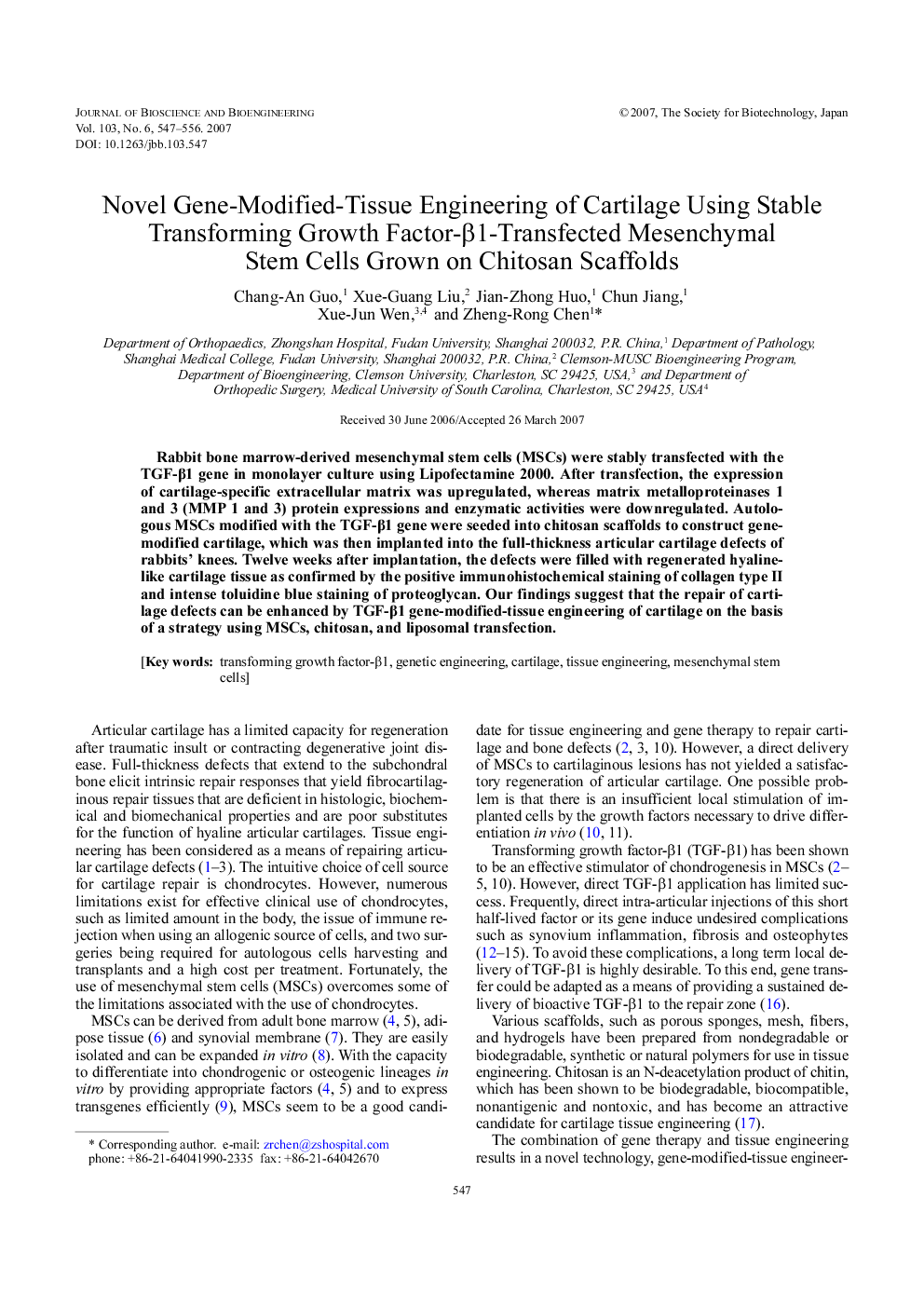| Article ID | Journal | Published Year | Pages | File Type |
|---|---|---|---|---|
| 21973 | Journal of Bioscience and Bioengineering | 2007 | 10 Pages |
Rabbit bone marrow-derived mesenchymal stem cells (MSCs) were stably transfected with the TGF-β1 gene in monolayer culture using Lipofectamine 2000. After transfection, the expression of cartilage-specific extracellular matrix was upregulated, whereas matrix metalloproteinases 1 and 3 (MMP 1 and 3) protein expressions and enzymatic activities were downregulated. Autologous MSCs modified with the TGF-β1 gene were seeded into chitosan scaffolds to construct gene-modified cartilage, which was then implanted into the full-thickness articular cartilage defects of rabbits’ knees. Twelve weeks after implantation, the defects were filled with regenerated hyaline-like cartilage tissue as confirmed by the positive immunohistochemical staining of collagen type II and intense toluidine blue staining of proteoglycan. Our findings suggest that the repair of cartilage defects can be enhanced by TGF-β1 gene-modified-tissue engineering of cartilage on the basis of a strategy using MSCs, chitosan, and liposomal transfection.
